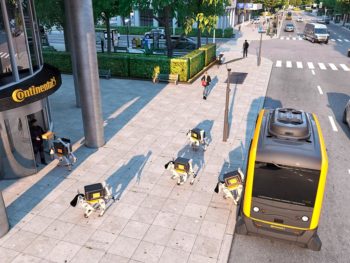The Department for Transport (DfT) is considering the imposition of a standard minimum delivery charge for last mile deliveries, to reduce its negative impacts and encourage more sustainable shopping behaviours.

The proposal has been put forward in a newly released statement by the DfT, and follows the department meeting with the Science Advisory Council (SAC) on 20 March earlier this year.
The standard delivery charge is one of several proposed measures that the DfT is looking at and believes will minimise the negative aspects whilst supporting the benefits of last mile delivery.
The DfT has proposed to consult the sector and the public on possible measures, including the standard minimum delivery charge, as well as to recognise logistics as a more significant element of national infrastructure and direct more funds towards it.
The National Infrastructure Commission Freight Study report recommended establishing a new Freight Leadership Council, which would be designed to bring together government and industry for accelerated progress on long term issues that should be supported by the DfT.
To enable planning decisions at local level, the DfT also proposed that it would commission a study into “digital twins” of a town’s or city’s infrastructure, which could be used to model the different options available to supporting last mile solutions.
Potential solutions included in the report recognised the current limited market availability and choice of electric vans to replace petrol and diesel vehicles, but that delivery hubs could in future have hydrogen refuelling stations installed to address the current lack of supporting infrastructure necessary to support fleets of hydrogen-powered LCVs.
e-Cargo bikes were also seen as a potential solution for last mile delivery, but were considered to offer few advantages over electric light vans for rural areas due to the distances. Forward thinking solutions are also being considered as potentially useful to the last mile industry, ranging from drones to autonomous vehicles and even robotic ‘dog-like’ systems that would not find steps problematic.
The DfT’s statement follows the huge growth in on-line shopping and as a consequence the substantial rise in parcel deliveries. There were 3.2 billion parcels shipped in the UK in 2017, an 8.2% year-on-year increase and an increase of 65% since 2012. The value of next day deliveries reached £5.5bn in 2016, up from £3.1bn in 2012, and same day deliveries have risen from £488m in 2012 to £1bn in 2016.
Van traffic in the UK grew 2.7% between 2016 and 2017 to reach a record high of 50.5 billion vehicle miles – the fastest growth in percentage terms of any motor vehicle type – although not all of this is attributable to increased deliveries.

